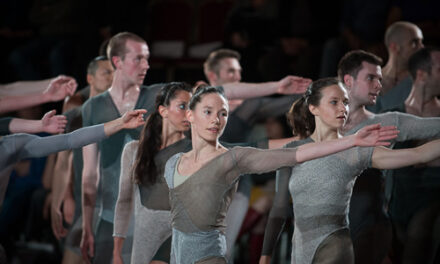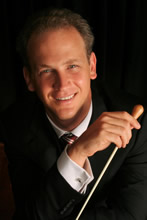To the general benefit of both the campus and the larger community, PlayMakers Repertory Company and Carolina Performing Arts have begun collaborating on stage projects. Last fall, they co-presented their first staged reading as part of CPA’s year-long “Sufi Journey” series, and on the 16th they presented a staged reading of Ayad Akhtar‘s 2014 play, The Who and the What in the Historic Playmakers Theatre. Viewers may remember the excellent PlayMakers’ production of Akhtar’s Disgraced last year, which featured remarkable acting by Rajesh Bose in the story of a Muslim attorney whose career and life are sent down in flames by a confluence of prejudice and fears. Bose, in a very different role, also led this ensemble of four, directed by PRC’s Vivienne Benesch, with her usual deft, gentle probing, and her unforced enjoyment of the humor buoying humans in their struggles.
“Staged reading” is an elastic term. The last one I’d attended (not a PRC production) was so weak I could hardly bring myself to attend this one – but I was curious to see if The Who and the What would be as strong and smart a play as Disgraced. It is. And it turned out that the presentation on the 16th was a model of what a staged reading can be when it involves powerful actors, highly prepared, under wise direction. It was so engaging that the brief intermission seemed an interminable interruption of the story.
The time is now – or at least in the near past, before Uber and Lyft took over. Afzal (Rajesh Bose) is a Pakistani immigrant who settled in Atlanta and built a thriving cab company, providing very well for his wife and two daughters. Now widowed, he struggles to understand his elder daughter Zarina (Rasha Zamamiri), who is writing a novel she won’t talk about – saying only that it is about gender politics. She had wanted to marry, but her father forbade the match, as the man was not Muslim. An obedient daughter as well as a devout Muslim, Zarina is nursing a broken heart accompanied by a bad case of writer’s block.
Her sister, Mahwish (Nilanjana Bose-Ciupinska), however, is hot to marry her longtime boyfriend, a “nice” Muslim boy, and Afzal is all for that. However, custom prevents the younger daughter from marrying before the elder. Since Zarina only comes out of her room to go to the library, Afzal and Mahwish take matters into their own hands by signing “Zarina” up on a Muslim computer dating site, about which she knows nothing.
“Zarina” gets interest from Eli (Adam Poole), a white guy from Detroit who early on converted to Islam and is now active in Atlanta. They set up a meeting in a park – but it is Afzal who goes to inspect Eli. Eventually Eli and Zarina are brought together; slowly she begins to trust him enough to reveal the contents of her book; they marry, and so does Mahwish. Afzal is happy.
A year later, Zarina finally finishes her novel, in which she attempts to strip away the hagiography obscuring the difficult man who became known as Mohammed the Prophet, and to rip away the questionable interpretations that have kept Muslim women behind the veil for a thousand years.
The manuscript (The Who and the What) nearly undoes her marriage and it does drive a wedge between Zarina and Afzal – she is dead to him – and its publication causes such an uproar that Eli is forced out of the masjid. But Zarina is redeemed, both by a flood of positive responses to her work, and in the traditional manner: She goes to say goodbye to her father before moving across the country, and to tell him that she is pregnant. Presto change-o, she’s back in her father’s grace. While this is somewhat galling, it is human. Afterwards, Afzal prays in joyous gratitude, begging protection for his daughter and the baby, and pleading that it be a boy. But Zarina gets the last laugh.
It’s a girl.
I’m sure it would be great to see a full production of this play, but the quality of the acting in this reading was such that the scenes were painted with voice and expression (aided by the young woman in black – Camille Mae Oswald – reading the stage directions in a mellifluous voice). The lecterns and notebooks became invisible – one saw an inhabited world. By the last quarter of the play, the actors had nearly abandoned their lecterns and notebooks as the characters became more dimensional, physically active, and emotionally communicative. The small stage and intimate size of the old Playmakers Theatre are just right for this kind of low-tech, human-centered work.
The Who and the What fits perfectly into the “Sufi Journey” series, the point of which is to indicate the breadth and variousness of Islam as it is and has been practiced around the world. It is not a monolithic religion, any more than Christianity is, and despite everything, it is remarkably ill-known in the US. It is a public service for the university to focus on Islamic expression at this time when the religion and its practitioners are frequently vilified. Sadly, this play does not repeat, but there are several more events in the series, which runs through April 12.












